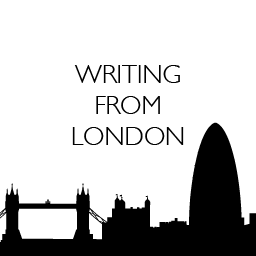Greetings and a special thank you to all subscribers because this weekend marks the first anniversary of Writing from London.
At the end of November 2022, I took a deep breath, and began my new life on Substack by looking for readers. Your response has overwhelmed me. I am hugely grateful for the support of so many thousands.
If you have not signed-up as a free or paying subscriber please consider doing so.
Here's how it works. Free subscribers receive many but not all posts. Paying subscribers receive everything: posts, archives, podcasts and access to the online debates. Most importantly from my point of view, you allow me to write without pressure from advertisers, sponsors, and media magnates. There is a direct engagement between writer and reader.
I am painfully aware that many of my readers face hard times. My paying subscribers allow me to provide content free of charge to those who cannot afford to take out a subscription.
Finally, as I am sure you appreciate, serious journalism is seriously hard work and like all other work should not be done for nothing.
OK, the hard sell is over. Please subscribe if you can.
While you fumble for your credit cards, I will continue with this week’s round up on the importance of economic pressures in culture wars.
I do not believe you can understand the neuroticism of Anglo-American intellectual life unless you look at them. In the case of UK, the austerity policies of the Conservatives have radicalised the intelligentsia.
I saw radicalisation spread across the public sector, as austerity bit. Indeed, there’s a decent argument that middle-class public sector workers, outraged by the scale of the cuts, used their voting power in the Labour party to help make Jeremy Corbyn Labour leader in the 2010s.
For the purposes of this piece, I will stay with the universities, because they face an incredible average shortfall of approximately £2,500 on every British undergraduate student this academic year. Present trajectories suggest that could grow to £5,000 by 2029-30 by which time I imagine many universities will be going bust.
Since the early 2010s, universities have saved money by keeping young academics on precarious and low-paid contracts – 68% of research staff in higher education are on fixed term contracts, according to their union, with many more dependent on short-term funding for continued employment.
Before anyone talks about freedom of speech and “woke” censorship, they need to acknowledge two points
1) Job insecurity provides the greatest restriction on freedom of speech in academia. If you are worried about securing a new contract you do not speak out of turn.
2) John Stuart Mill was never more right than when he called the Conservative party the “stupid party”. To discover how right, imagine some evil revolutionary mastermind, who wanted to turn the educated middle-class against the status quo. He could do it by so ordering society that the government gave young members of the bourgeoisie hopes and expectations they could never fulfil. Having filled their heads with impossible dreams, the state then piles them with debt, puts them in insecure jobs, says they can never buy a home, and then tells them to educate the next generation. Like the Bourbons, the Tories have created the monster they fear.
The rise of wokeness, or identitarian politics, or however you want characterise the middle-class left movement of the past decade is not simply an economic phenomenon. Yascha Mounk has mapped its frankly dubious intellectual antecedents (I reviewed his work here), and doubtless Conservatives enjoy such exposes. However, Conservatives don’t like to admit that wokeness is also a legitimate reaction to real racism and misogyny. My point is that the economics matter too, and an understanding of the economic pressures ought to temper ideological posturing.
Mind you, such nuance is not good for business if you are a freelance writer. Editors want extreme reactions. You must either write that the woke scare is right-wing paranoia (the Guardian) or it is an authoritarian menace (the Telegraph). It is harder to find an accommodating commissioning editor if you want to tell the truth and say it is both.
Keep reading with a 7-day free trial
Subscribe to Writing from London to keep reading this post and get 7 days of free access to the full post archives.




